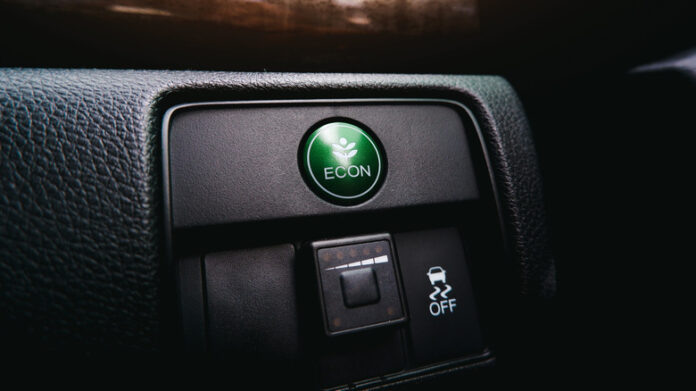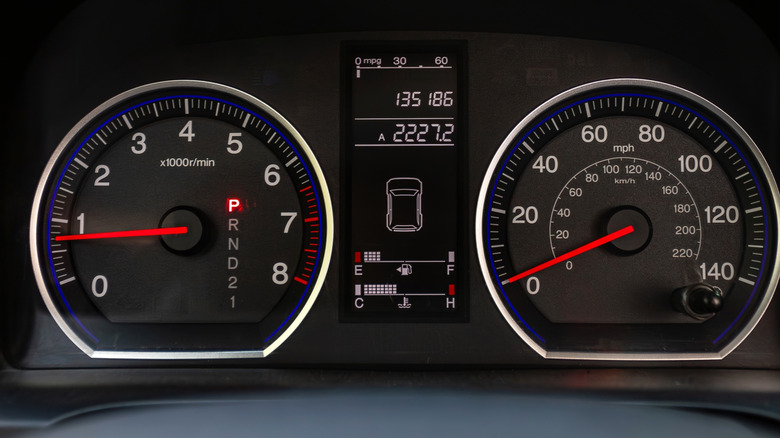If you’re driving a Honda, you may have noticed that big green Econ button. It’s pretty hard to miss, really. The name “Econ” sounds like something that should save you money. And given the leaf painted on that green button, maybe it’s saving the environment, too. But what does it do, exactly?
Basically, Econ is just Honda’s version of the industry-wide Eco mode, which is meant to conserve fuel by making the car bias slightly more toward fuel efficiency. In practice, that means a less aggressive engine. Your throttle will be a bit slower, so the engine doesn’t rev as hard; similarly, the car will shift gears at different points, keeping the rev counter as low as possible for as long as possible. For the same reason, cruise control won’t downshift as much, even on an incline. Finally, your air conditioner won’t blow quite as hard or for as long.
How Econ mode saves you fuel
The major point here is that Honda’s Econ mode (or really, any car’s Eco mode) is trying to keep your engine from revving as hard, meaning the rpm should stay pretty tame throughout the trip. Higher rpm typically means better performance, which is why particularly enthusiastic drivers like pushing the needle all the way to the redline (preferably in cars that don’t even hit the redline until 9,000 rpm). However, the trade-off is that the higher the rpm, the more gas the engine has to burn.
So, Econ effectively tries to stop the engine revs from ever getting very high in the first place. Slower acceleration asks less of the engine than faster, so it changes the throttle response in that direction. Upshifting gears quicker means the needle never moves all that far clockwise; generally, you get your best gas mileage if you shift around 2,500-3,000 rpm. And since your air conditioning is being powered by the engine, calming that down a bit also asks less of the engine.
Honda doesn’t make any specific claims about how much better your mileage will be in Econ mode. But a quieter engine means less fuel spent, saving you a bit of gas money over time and being — slightly — less damaging to the planet you live on.



